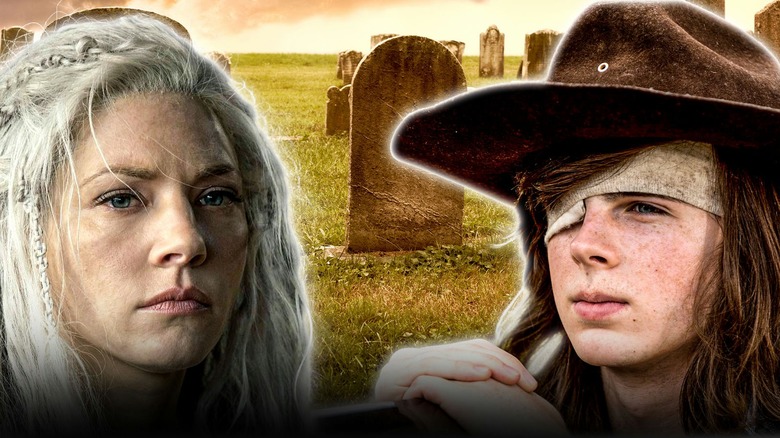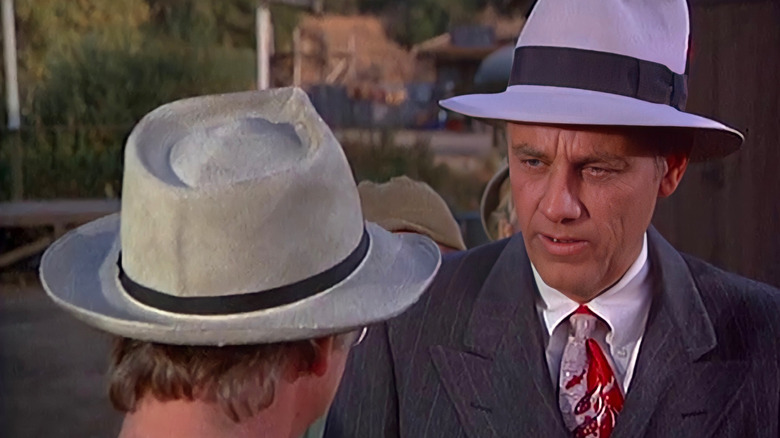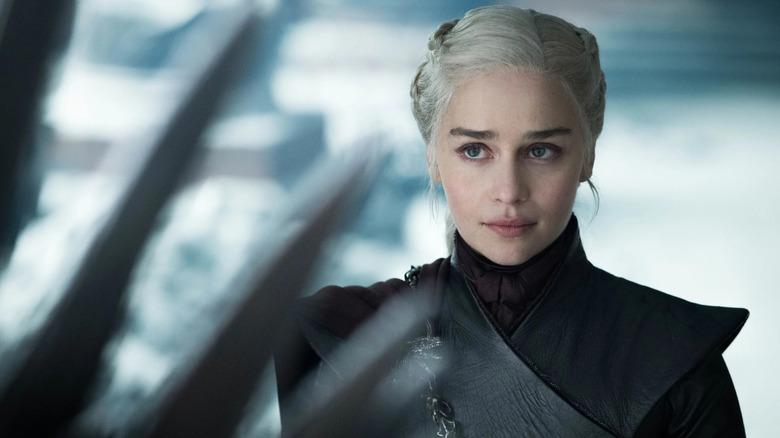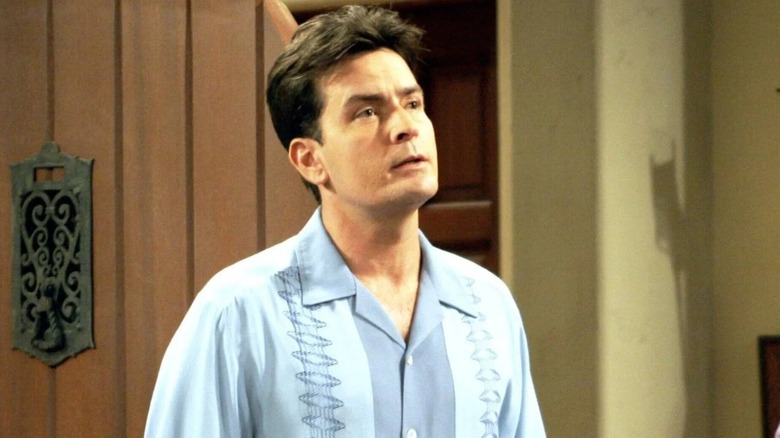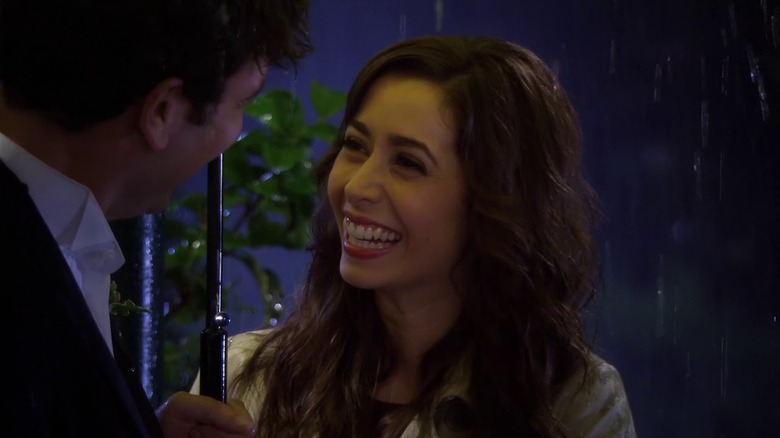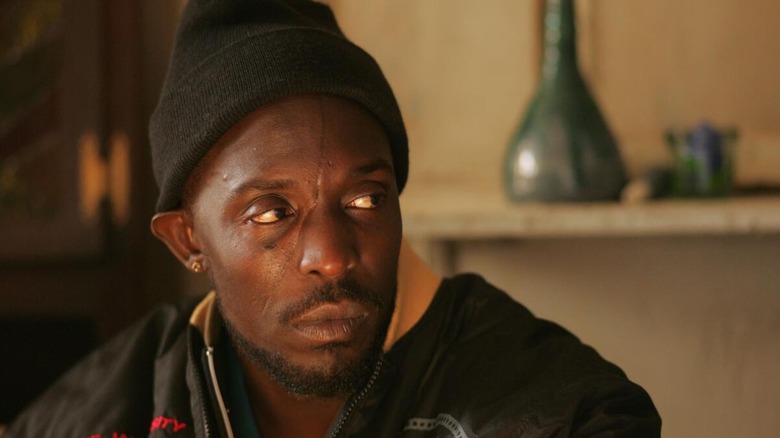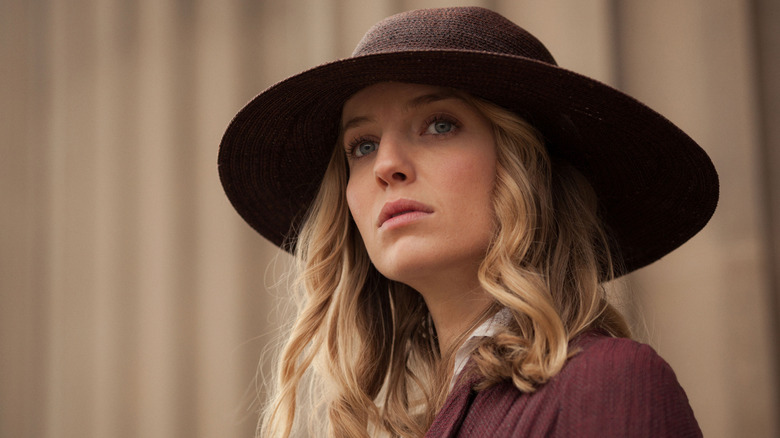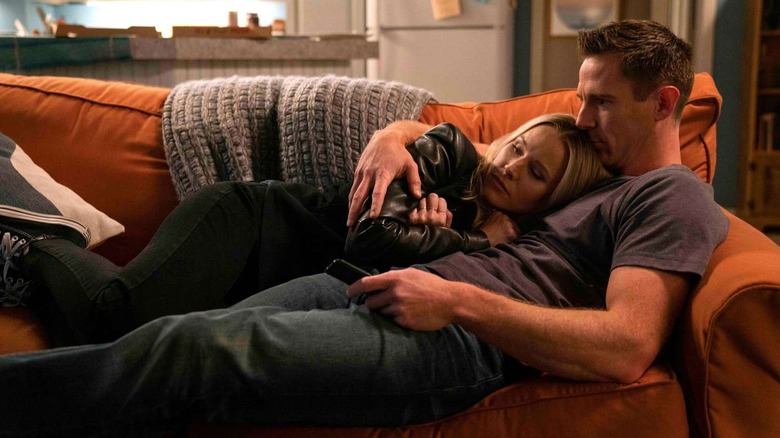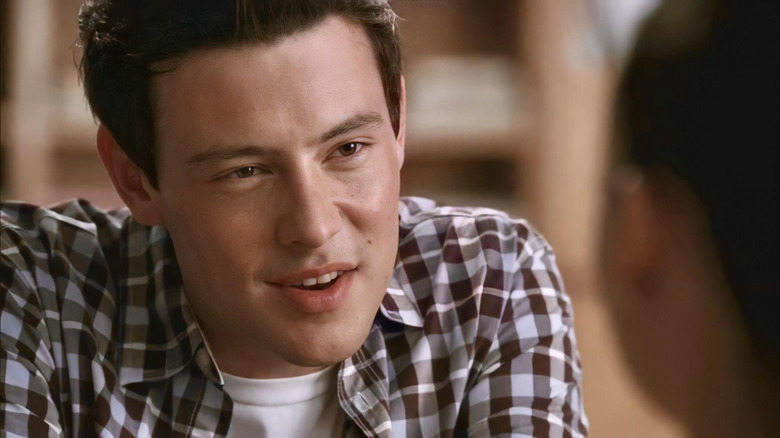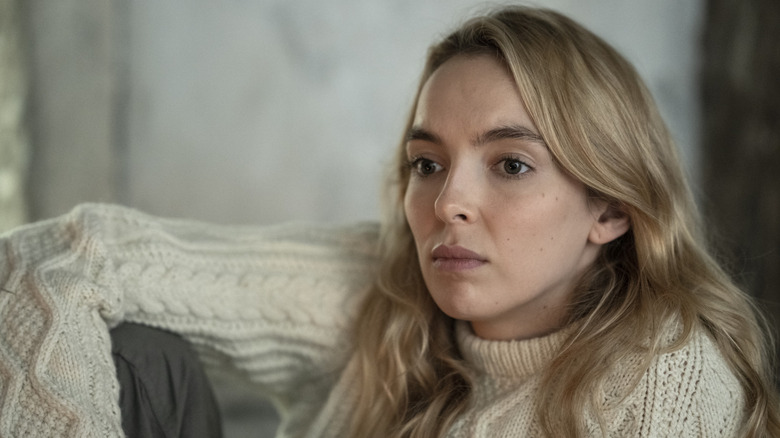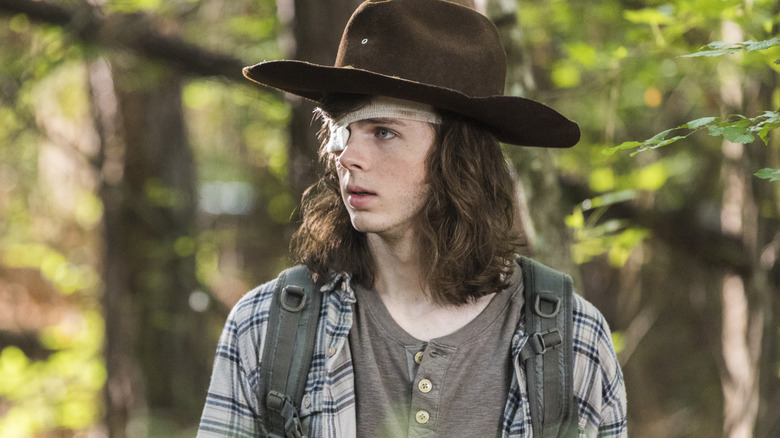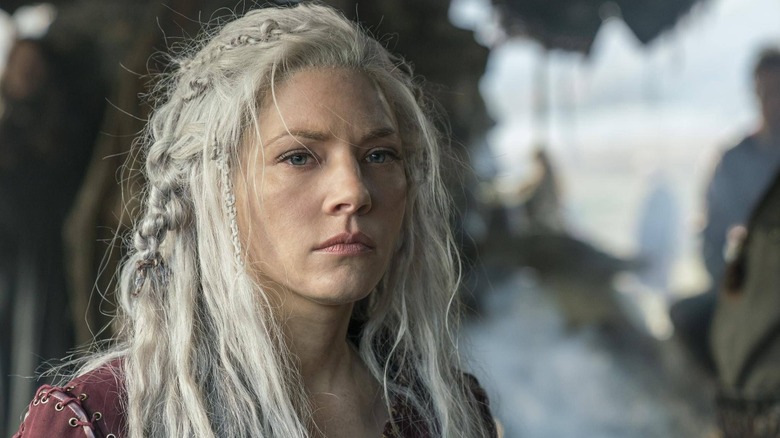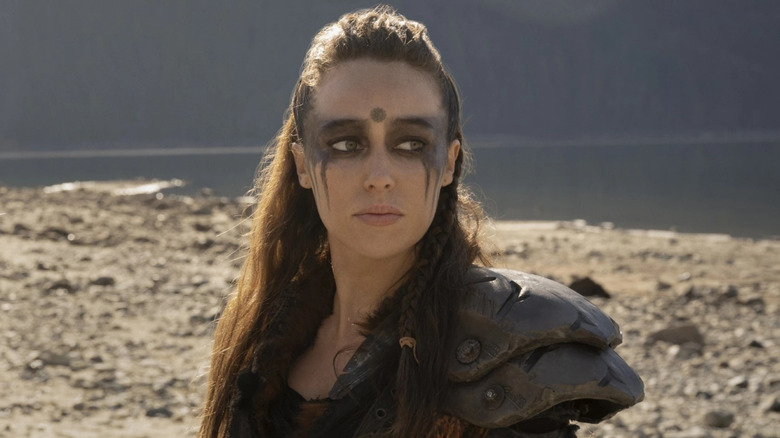Character Deaths That Ruined The Show
Television is unique in that it can cultivate years-long emotional investments in characters. With the Internet-driven world of fandoms, viewers are more connected to characters in TV shows than ever before, which makes killing them off risky. This is rarely ever done on a whim for TV creators. And yet, for some iconic shows, killing beloved characters has been met with controversy, particularly when fans are caught off-guard by a cast member's absence. Some of the saddest TV character deaths still linger in the minds of fans long after the shows have concluded.
For these 12 shows, the deaths of beloved and iconic characters put them at odds with their own audiences. Whether justified or not, these deaths tainted the memory of the shows in question for years to come, turning once-adored cultural institutions into wastes of time and leaving a bitter taste in the mouths of viewers. At the very least, all these shows deserve some credit for introducing audiences to empathetic characters, but their greatest crime was taking them away with little regard for the fans' investments.
Henry Blake in M*A*S*H
"M*A*S*H" is a decade-defining sitcom from the 1970s. Set at an overseas army hospital during the Korean War, the show came with a loveable cast of characters, including "Hawkeye" Pierce (Alan Alda), "Hot Lips" Houlihan (Loretta Swit), and "Radar" O'Reilly (Gary Burghoff). Despite the serious subject matter, fans were shocked when one beloved character made an abrupt exit.
After requesting to be written out of the series, McLean Stevenson's character Henry Blake is honorably discharged and boards a plane to leave, a heart-wrenching but beautiful farewell to a beloved character. However, the final scene of the episode sees Radar enter the operating room to deliver the news that Blake's plane was shot down en route to take him home.
Even Stevenson's fellow cast members had no idea about the twist before it was filmed, with director Larry Gelbart recounting in his memoir, "Killing a character in a half-hour show had never been done before. That was all the reason [producer] Gene [Reynolds] and I needed to know we would have to do it," (via Snopes). CBS received thousands of complaints and letters from angry fans and even removed the final O.R. scene in re-runs of the episode. Blake's death soured many people on "M*A*S*H" at the time, with some calling in to let the creators know personally that they would no longer be watching the show.
Daenerys Targaryen in Game of Thrones
The way "Game of Thrones" went from being the center of all pop culture discourse to one of the most disappointing shows in TV history will be studied for generations. The HBO fantasy drama wasn't shy about killing off characters, but it's a shame how dirty the writers did Daenerys Targaryen. Needless to say, this wasn't the ending of "Game of Thrones" we really wanted.
From the very first episode, viewers were primed to care deeply about Emilia Clarke's character, who began her journey as the victim of abuse. Over the course of eight seasons, Daenerys learned what it takes to be a leader and set her sights on reclaiming her house's rule over Westeros. That is, until all of her character development is thrown out the window in the last few episodes as she goes mad and rains fire on King's Landing.
In the series finale, "The Iron Throne," Daenerys is assassinated by her lover, Jon Snow, before she even gets to sit in the Iron Throne. Fans were certainly upset that such an iconic character had an ending so anticlimactic. Even Clarke herself admitted to having mixed feelings about her character's ending, telling The Sunday Times, "I tried, at every turn, not to consider too much what other people might say, but I did always consider what the fans might think — because we did it for them, and they were the ones who made us successful, so ... it's just polite, isn't it?"
Charlie Harper in Two and a Half Men
"Two and a Half Men" changed Charlie Sheen forever. Likewise, his departure from the sitcom changed the show forever. It's not uncommon for network sitcoms to continue after losing their lead actors. However, for "Two and a Half Men," the departure of its lead was a killer blow and the subject of much controversy in the early 2010s. It all came about after a series of comments from Sheen about series creator Chuck Lorre and interview ramblings about how he had "tiger blood" forced CBS to suspend production and ultimately fire him.
Season 9 opened on the shocking news that Charlie was killed in a subway accident while in Paris. Stepping in to replace him was Ashton Kutcher, though right off the bat the new "Two and a Half Men" was lambasted by critics, with The Hollywood Reporter writing, "Sheen will get the last laugh, if he hasn't already, and that his new show — if it ever happens — will be exponentially funnier than the laugh-free 22 minutes from last night."
To make matters even worse, Charlie's fate was retconned in the series finale, which revealed that his death had been faked. However, Sheen still does not appear on-screen. In the series' final moments, a piano falls on Charlie (played by a lookalike). The camera pans out to show Lorre, who turns to the audience and says "Winning!" in reference to Sheen's meltdown. It's all very meta, and not very funny. At the very least, Sheen regrets causing the sitcom's downfall.
Tracy McConnell in How I Met Your Mother
"How I Met Your Mother" spent eight seasons hyping up the reveal of its titular character, only to betray the audience in its series finale. Cristin Milioti did the impossible by making the buildup of meeting Tracy McConnell, future wife of Ted Mosby (Josh Radnor), worth it, with their chemistry and love story coming across as meant-to-be. The two-part finale, "Last Forever," ended with the twist that, in the future where Ted is recounting this story to his children, Tracy has died of an unknown illness. As a final nail in the coffin, the last moments show Ted rekindling his romance with Robin (Cobie Smulders).
Fan reactions to the finale were mixed for many reasons, including the break-up of Robin's marriage with Barney (Neil Patrick Harris). However, it was the fate of the Mother that really made the show feel somewhat pointless, particularly with the knowledge that the ending was filmed early on in the show's run so the actors wouldn't look too old. In response to the backlash, the Season 9 DVD included an alternate ending, but Milioti defended the original, telling Vulture, "The way [they] explained it to me was, 'Well, Ted has two loves, and basically what we're trying to say is that life comes at you in ways you can never expect.'" Fortunately, Milioti's been up to a lot since "HIMYM" ended.
Omar Little in The Wire
HBO's "The Wire" is one of the greatest TV dramas of all time, but there's one death in it that fans are still upset about to this day. Omar Little was a breakthrough role for the late Michael K. Williams, evolving from a recurring character to Barack Obama's favorite TV character. Omar was also an unapologetic queer character in an era of TV where those were few and far between.
Sadly, two episodes away from the series finale, Omar is unceremoniously killed in a corner store by a young boy who is robbed by Omar during his attempts to intimidate gangster Marlo Stanfield (Jamie Hector). Many audience members felt the abrupt ending was anticlimactic for a character as beloved and important to "The Wire" as Omar. Upon the episode's release, fans complained that the timing of Omar's death made no sense.
"'The Wire' was real in the sense that those characters whose lives were in the street could be killed off at any time. That's how it really is," Williams wrote in his memoir about the scene (via The Guardian). "The realism of that world demanded that Omar too meet his fate." It's true that part of what made "The Wire" so great was how committed it was to representing the real world, but Omar's shocking death still ruined the show for a number of fans.
Grace Shelby in Peaky Blinders
For nearly a decade, "Peaky Blinders" was one of the most critically-acclaimed crime dramas on television. Although the show is a brutal depiction of England's seedy criminal underworld, the most surprising aspect of the first season was the love story between Tommy Shelby (Cillian Murphy) and Grace Burgess (Annabelle Wallis), an undercover agent who gets close to Tommy and ends up falling for him.
Season 3 starts with Tommy and Grace getting married, but by the end of the second episode, Grace is suddenly assassinated at a Shelby Charity Foundation dinner. Fans were heartbroken that she was killed off so suddenly, but, as creator Steven Knight explained in a Reddit AMA, "[Tommy] wasn't meant to be happy." Others still criticized the decision as being disrespectful to the character, who had only briefly appeared in the previous season, as well as having little to do with the remainder of the third season.
However, Grace's death wouldn't be the end of Annabelle Wallis when it comes to "Peaky Blinders," thankfully. The actress reprised her role in later seasons as Tommy began hallucinating about his deceased wife, though this version of her is more responsible for driving Tommy towards insanity. Maybe fans can hope to see her one last time in the "Peaky Blinders" movie.
Logan Echolls in Veronica Mars
"Veronica Mars" was a cult classic when it first aired in the mid-2000s, but, despite good ratings, it was cancelled after its third season. After a successful Kickstarter campaign, a feature film was released in 2014, reuniting the titular detective (Kristen Bell) with her enemy-turned-lover Logan Echolls (Jason Dohring) as she investigates the murder of his ex-girlfriend. Hulu later revived "Veronica Mars" for a fourth season in 2019.
While the new season saw Veronica and Logan navigating their relationship, long-time shippers were likely vindicated when the season finale ended with the duo getting married. At least, until Logan is suddenly killed by a car bomb set by Penn Epner (Patton Oswalt), a true crime enthusiast-turned-terrorist. Unfortunately, for a show that was as fortunate to be around for a fourth season as "Veronica Mars," killing off a main character in the final minutes of the season left a bad taste in many viewers' mouths.
Series creator Rob Thomas defended the storytelling decision to The Hollywood Reporter as reminiscent of the noir genre, saying, "I am prepared to take some lumps, and hopefully there will still be fans left afterwards, because it does feel like cutting off an arm so that the body can survive." Sadly, it seems Thomas was wrong, as Hulu opted to not renew "Veronica Mars" for a fifth season.
Finn Hudson in Glee
It's not exactly a hot take to think that "Glee" should've ended way earlier than it did. The Fox teen drama centered on a high school glee club, though by Season 4 it involved a lot of backwards logic to keep the graduated characters around. Nevertheless, real-life tragedy kept one cast member from staying on the show for any longer.
The promising career of Cory Monteith was unfortunately cut short in 2013 when the actor died from an accidental overdose, deeply affecting the entire entertainment industry, but especially his co-star Lea Michele, who was also his partner off-screen. The series' best episode may come in Season 5, when the show blended with real life as both the actors and their characters mourned their friend in the episode "The Quarterback," which was acclaimed by critics and fans alike.
"Glee" kept on for another two seasons after Monteith's passing, with ratings steeply declining throughout. In an interview with TVLine in 2022, Murphy said that if he could change anything about the show's handling of Monteith's passing, "I would be like, 'that's the end.' Because you can't really recover from something like that. ... It wasn't, like, a normal death where someone is sick, and you can see them. It happened so quickly with no warning."
Villanelle in Killing Eve
There are breakout performances in recent television history, and then there's Jodie Comer as Villanelle in "Killing Eve." The crime drama, centered on a game of cat-and-mouse between Comer's sadistic assassin and Sandra Oh's MI6 agent, premiered to rave reviews, but while things were already starting to dip by its third season, it was Season 4 that took a turn for the worse by killing off Villanelle in the show's final moment.
Like many queer TV shows before it, critics and fans alike accused "Killing Eve" of falling victim to the "bury your gays" trope, in which queer representation is swiftly taken away from audiences by killing off LGBTQ+ characters. This is certainly applicable to the series finale, in which Villanelle is unceremoniously killed by a sniper just after spending a day with Eve basking in their love for each other.
The show's stars defended the ending as inevitable, with Oh telling Elle, "As an audience you want to be satisfied. You want to know. Like, 'I want to be satisfied. I want it tied up in a bow. I want to understand it.' But that's not it." As a consolation, Luke Jennings, the author of the original book series that the show was based on, announced a new book starring Villanelle for fans to vicariously re-imagine her story.
Carl Grimes in The Walking Dead
So many characters met tragic fates on "The Walking Dead" that the show's title would be an apt description of the cast. For 12 years, characters came and went in the post-apocalyptic world of the show, from Andrew Lincoln's iconic Rick Grimes to beloved fan-favorites like Steven Yeun's Glenn Rhee. However, most who watched the show can agree that one death went too far.
Chandler Riggs was cast as Carl Grimes when he was 10 years old. In the eighth season, he was suddenly killed off. After being bitten during an encounter with walkers, Carl is forced to shoot himself rather than let himself turn into a zombie while his father and Michonne (Danai Gurira) get started on building a better community in his honor.
While many viewers weren't exactly shocked at Carl's inevitable death, Paul Tassi outlined perfectly how it felt like a cheap way to twists the hearts of audiences. "The issue is that 'The Walking Dead' is, and has always been, Carl's story to some extent. Sure, Rick is the star, but Carl is a character we have literally seen grow up in the zombie apocalypse," Tassi wrote in a Forbes article, adding, "The death of Carl feels like the death of hope." Even years later, fans still feel this plotline was a huge mistake.
Lagertha in Vikings
Given its basis in actual Nordic lore, the History Channel's "Vikings" knew they'd be losing some beloved cast members along the way. For instance, the series' lead Ragnar Lothbrok (Travis Fimmel) is killed at the end of its fourth season, with the remaining two seasons of the show focusing on not only his sons, but his queen, Lagertha (Katheryn Winnick), who comes into her own as a ruler in Ragnar's place. However, Ragnar's death is not just why some long-time fans stopped watching "Vikings" – it was Lagertha's.
In the sixth episode of the show's sixth season, Lagertha is mistakenly stabbed to death by Hvitserk, one of Ragnar's sons, during a delirious state where he confuses her with his brother Ivar. Fan reactions were divisive, with many claiming they would boycott future episodes of the show now that yet another lead had been killed prematurely.
One person who wasn't upset with how Lagertha went out was Winnick herself. "I couldn't be happier than to have the kind of death that she had. I asked [creator] Michael Hirst one thing," Winnick told TV Guide, "to make sure it's going to be something epic and some big event and something that makes it worthwhile to die." Despite Winnick's thoughts, many fans felt she deserved a better way to go out than a tragic misunderstanding.
Lexa in The 100
One of the most controversial character deaths that ruined a TV show happened in "The 100." The CW series centers on the survivors of a nuclear apocalypse. It begins with a group of unruly juveniles who grew up on a space ark being sent down to Earth almost one hundred years after the nuclear event that made humankind flee. When they touch down, they encounter the descendants of the people who managed to survive. Viewers got really attached to one character in particular: Lexa (Alycia Debnam-Carey).
The character's reveal as queer was praised by fans and critics alike, though it didn't take long for the creators to throw that acclaim aside. After a third season of mixed reactions, Lexa died in the episode "Thirteen," and there was lots of backlash over the decision to kill off the fan-favorite, a decision even the actress defended. Though Vox cited Debnam-Carey's impending role in "Fear the Walking Dead" as a reason for her departure, they wrote, "[No] matter how well Lexa's death scenes were done — and they were written and performed beautifully — the rush to get Lexa and Clarke together, only to immediately kill Lexa off, was jarring."
This death ruined the show for many. Fortunately, there was some closure for both fans and Debnam-Carey when the actress was brought back to cameo in the series finale, with The Judge briefly taking the form of Lexa. The gesture was appreciated by Debnam-Carey and fans of the show, to whom her character meant so much. This should serve as a lesson to future TV creators who are considering pulling the rug out on their audiences.
